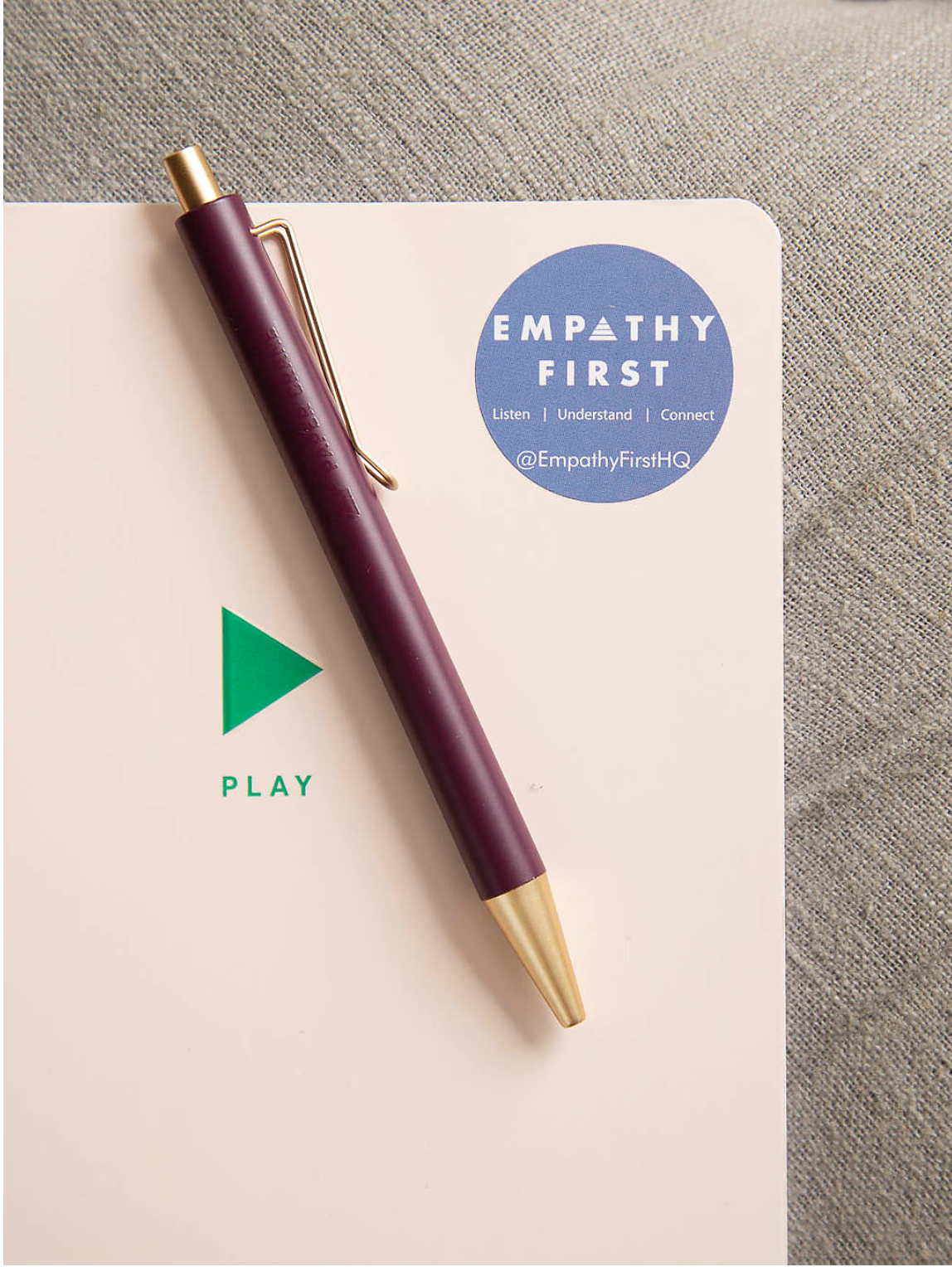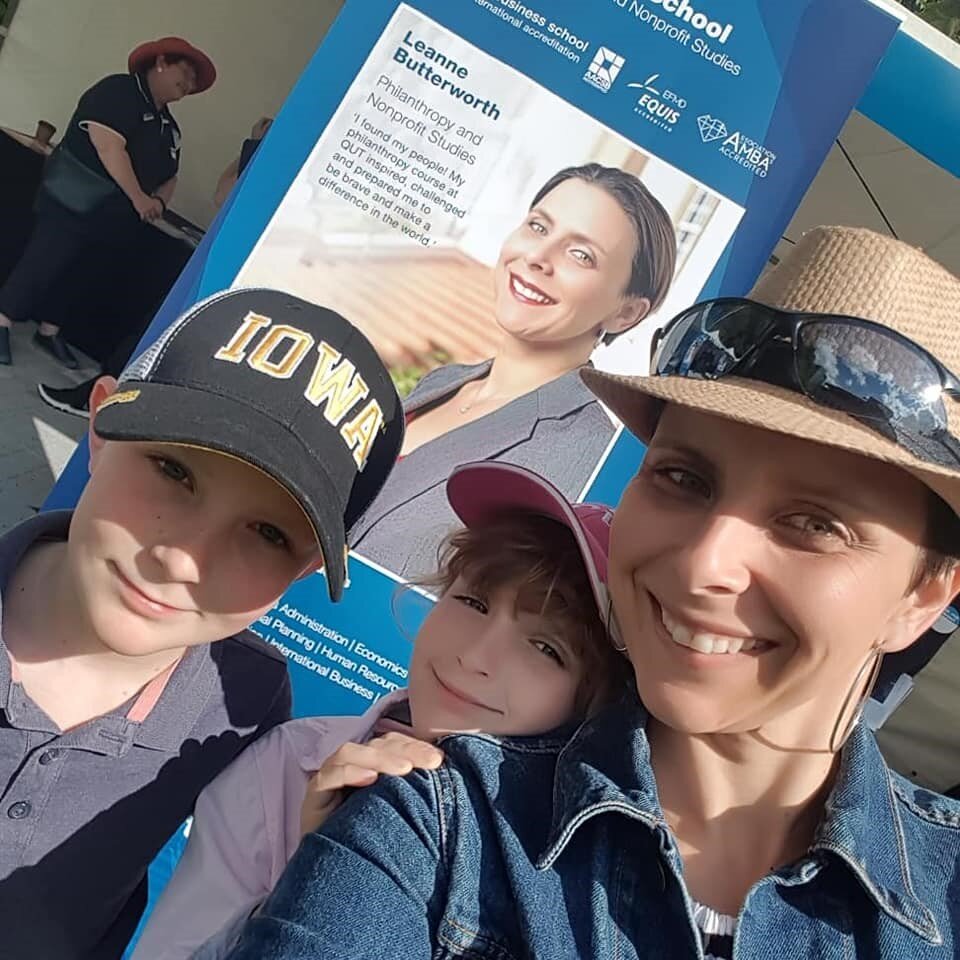Leanne Butterworth On How Adopting Empathy Enhances Social Enterprise Performance
Leanne Butterworth is on a mission to create happy and healthy workforces and communities - and save lives - by empowering leaders with empathy skills that make everyone feel heard, valued and visible.
Based in Brisbane, she is mum to Rowan and Zara, has a degree in Applied Science and a Graduate Certificate in Business (Nonprofit and Philanthropy). She has developed and runs her own social enterprise - Empathy First, hosts The Professional Empathy Podcast, is a tutor at QUT teaching Social Enterprise, and works with the Queensland Social Enterprise Council (QSEC).
Leanne discusses how practicing empathy helps social entrepreneurs understand their beneficiaries and generate a stronger social impact.
Highlights from the interview (listen to the podcast for full details)
[Indio Myles] - Could you please share a bit about your background and what led to your work in social enterprise?
[Leanne Butterworth] - There is never a straightforward answer to that question, but my answer starts with when I was working with a small non-profit organisation in mental health, and I created a project for them. I realised I wanted to learn more about non-profits, charities and mental health, so I went back to university and studied Non-profit and Philanthropy at QUT with the Australian Centre for Philanthropy and Non-Profit Study. While I was studying there, we did a subject called ‘social enterprise’ and I realised that these are my people, because the project I was working on was already a social enterprise that was using virtual reality to stimulate psychosis and teach people really advanced mental health literacy. When I realised that my idea was a social enterprise, I then thought of how I've never heard of social enterprise. It was really interesting to have those worlds then collide.
When COVID-19 began, and virtual reality fell by the wayside I thought that there was more to this concept of social enterprise and that the piece of the puzzle that people were missing was empathy and not knowing how to practice it.
Even without the virtual reality piece, I was able to bring my love of business, social enterprise, mental health and put it all together into what's called now Empathy First.
Leanne, you are the owner of Empathy First, an enterprise focused on creating happier, healthier and more sustainable workplaces through empathetic communication. What are the key reasons that you believe organisations experience difficulties, and how does Empathy First facilitate meaningful change?
There are actually a lot of misunderstandings out there in the social enterprise community about what empathy actually is because there are all different definitions and types of empathy. If I quickly define them, then we will all be talking about the same thing. There are three different types of empathy, the first being Emotional Empathy which is saying, "I feel what you feel". Sometimes, we get too caught up in what other people are feeling that we actually neglect our own emotional needs.
If you're not setting boundaries then especially in social enterprise when we care so much about what we're doing, it can lead to burnout if we're interacting too much in the Emotional Empathy space.
Cognitive Empathy is the idea of knowing what someone is going through. It can actually be quite dismissive if we say to someone, "oh, I've done that too", or "I've experienced that too," to imply that therefore you know their exact experience. The third type of empathy is Compassionate Empathy, and that's the ability to share and understand the feelings of another person and respond appropriately. That's the form of empathy that we at Empathy First really talk about. In a lot of businesses, especially social enterprise, we need Compassionate Empathy at every level. We need it with our self, our staff and our market, but we also need it with our beneficiaries.
A lot of people are going wrong because they don't realise that that's what empathy is, and that's how you create sustainable businesses and really high impact social programs, through sharing and understanding the feelings of other people and responding appropriately. When people look at empathy, they either jump too much into the emotional aspects or they don't know how to respond appropriately to really build connections with their market or beneficiaries. Or, if they're not empathising with their staff, that's when you experience metrics such as high turnover, poor mental health culture and poor social programs, because we haven't empathised with what the staff are going through and how they deliver what it is we want them to do.
The way that Empathy First fits in is we actually teach people what, why and how empathy can be placed at the core of your social enterprise or business. This involves really learning how to make people feel heard, valued and visible.
We also help businesses craft an empathy commitment, which helps us do benchmarking and evaluations. It also really sets the tone for the social enterprise to say, "we believe that everybody who has an interaction with our social enterprise deserves to be heard, valued and visible, and this is how we're going to do that."
As well as working with Empathy First Leanne, you work with The Professional Empathy Podcast and more broadly with the Queensland Social Enterprise Council. What do you believe are the best methods to teach empathy as a concept on a larger scale?
Teaching empathy as a concept is the first piece necessary and then teaching the practical skills to achieve this is the second piece. Mainly, it's all about engaging people in a way that's relatable, memorable and creates real behavioural change by forcing people to self-reflect. I can't just tell people to be empathetic, but I can give them insight into their own personal need for empathy and inspire them to make other people feel heard, valued and visible. Taking away fear and the misunderstanding is the first step. On The Professional Empathy Podcast, I delve into the value of empathy both from professions and for professions. For the social entrepreneurs listening or reading, I have an episode on empathy in leadership, empathy in sales, empathy in entrepreneurship and coming up I've got episodes about, empathy in politics, empathy in social enterprise and empathy in disability inclusion. In terms of the social enterprise community and where QSEC fits into that, it's all about building community.
The more we can create a community of social entrepreneurs who are leading with empathy, then the more it will become the norm, the more successful the sector will be and the greater impact we can all have.
As I mentioned before, empathy and social entrepreneurship exists as empathy for yourself first and foremost.
When you're taking care of yourself, you can create a greater impact. Part of that is having really strong boundaries, so knowing what you are and are not responsible for.
Then, it's about listening and connecting with your staff, beneficiaries and fellow social entrepreneurs. It is the best way that the social enterprise sector can then really incorporate empathy into everything that we do.
Now that we're talking a bit more broadly about the enterprise sector, you play a significant role as both an educator and teacher of socially premised businesses. If you could give one piece of advice to an entrepreneur who is new to the social enterprise space, what would that piece of advice be?
I actually have these conversations all the time with my students at QUT, new social enterprises who join QSEC or even my social enterprise clients. We always talk about where to begin in these conversations, and the personal core values that I stand by no matter what role I'm performing whether it's teaching, speaking or engaging the community are bravery, impact and empathy. They are my three core values, and I believe that when you're starting out, you must be brave as nothing is straightforward. You're often cutting a new path, and you have got to continue to show up, challenge yourself and be seen. From that, you've got to focus on the impact you want to achieve and how you're going to create it.
But one hundred percent of the time you must without question or negotiation incorporate empathy into everything that you do at every level. Whether it's personally, professionally, or in a business, you need to learn to listen and connect with every single person that has an interaction with you.
As I said before, Compassionate Empathy is the ability to share and understand the feelings of another person and respond appropriately. If you're not responding with empathy to yourself, your beneficiaries and your market, you will not succeed. You've really got to go back to basics, which in my mind and with my values is to be brave, focus on the impact you want to have, and then show up with empathy in every single interaction.
That is super critical Leanne. What inspiring projects or initiatives have you come across recently which are creating a positive social change?
How long have you got to talk! One of the roles that I have at the moment is Membership Engagement Officer at QSEC, and I see hundreds of social enterprises through this.
Please go to qsec.org.au and go to our enterprise directory. If you look there, you'll just be amazed by how many enterprises there are. They're all different shapes, sizes and business models as well as at all different levels of maturity, but some of my favourite organisations are The Baking Bunch, One But Many Puzzles, Vessel Nundah, Hotel Housekeeping, House of Eden and Green Fox Studios.
In Queensland, there is so much happening, and the work that other people are doing inspires me every day to keep doing what I'm doing, because I know that they're making a difference, so I'm making a difference.
With these enterprises, Queensland is absolutely the better for it.
To finish off Leanne, what books or resources would you recommend to our listeners?
First and foremost, I have an online course called Empathy Fundamentals, as well as a free mini course about how to write emails with empathy. But I also run workshops for businesses about empathy. That being said, I think the key to empathy is listening and reading as much as you can about all different perspectives, stories and people. Look outside yourself and maybe take a formal course such as ACPNS or iActivate. QSEC now have a huge online learning centre (and it comes free with your membership), but if you want to learn anything from the theory of change, impact measurement, social procurement and certification, there are many courses included in your membership. As for empathy, my favourite book (apart from anything written by Brené Brown) is this beautiful little book called A Kids Book About Empathy by Darren K Roberts. It is pure delight, and it spells out the concept of empathy so perfectly. Finally, and I know this is not a book but instead a resource, anytime you talk to anybody in the social enterprise space, and you ask them about what they do, their faces light up!
I've never met anybody in the social enterprise space who says , "I hate going to work." One of the best resources is to talk to other people in the space.
Going to pitch nights, asking entrepreneurs for their insights, contacting them on LinkedIn, looking on the QSEC website and seeing who else is playing in the space is invaluable. I know that personally if anybody reaches out to me, I'm absolutely up to chat because I love this space. I love the role that empathy plays in the sector, so people can reach out to me. I do daily empathy insights on Instagram at empathyfirsthq, you can find me at empathyfirst.com.au, listen to The Professional Empathy Podcast and do an online course. But the role of empathy as part of social enterprise is always going to be evolving, so there's always more to learn in that sense.
Initiatives, resources and people mentioned on the podcast
Recommended books
A Kids Book About Empathy by Daron K. Roberts








